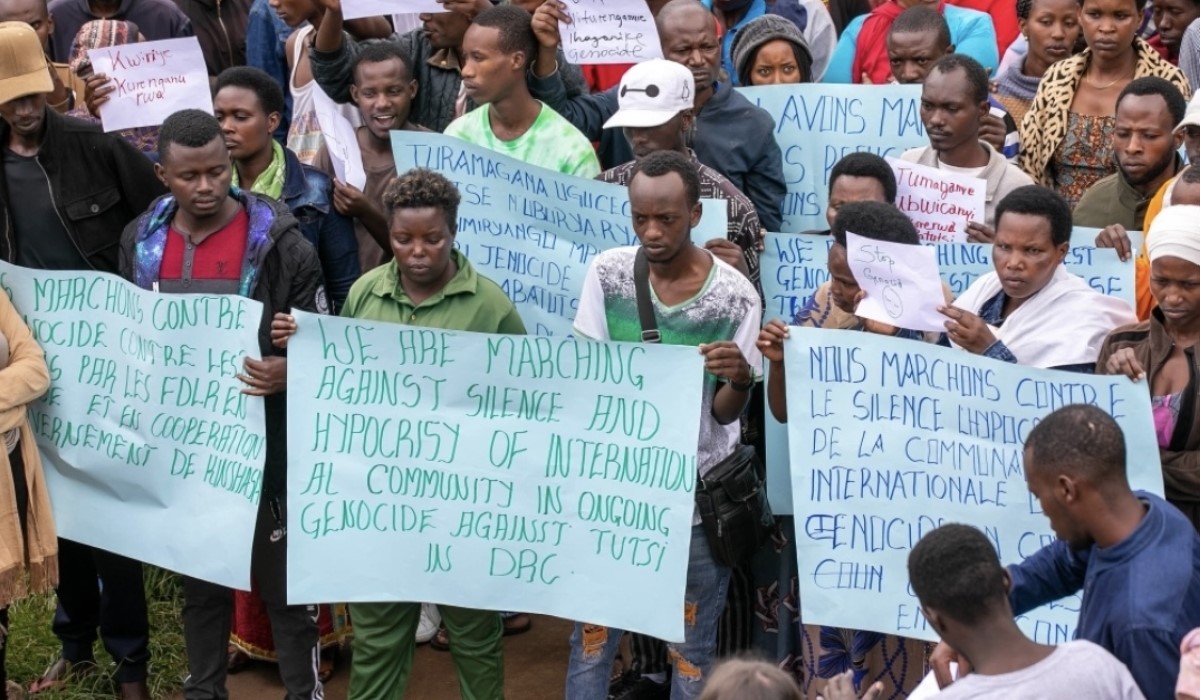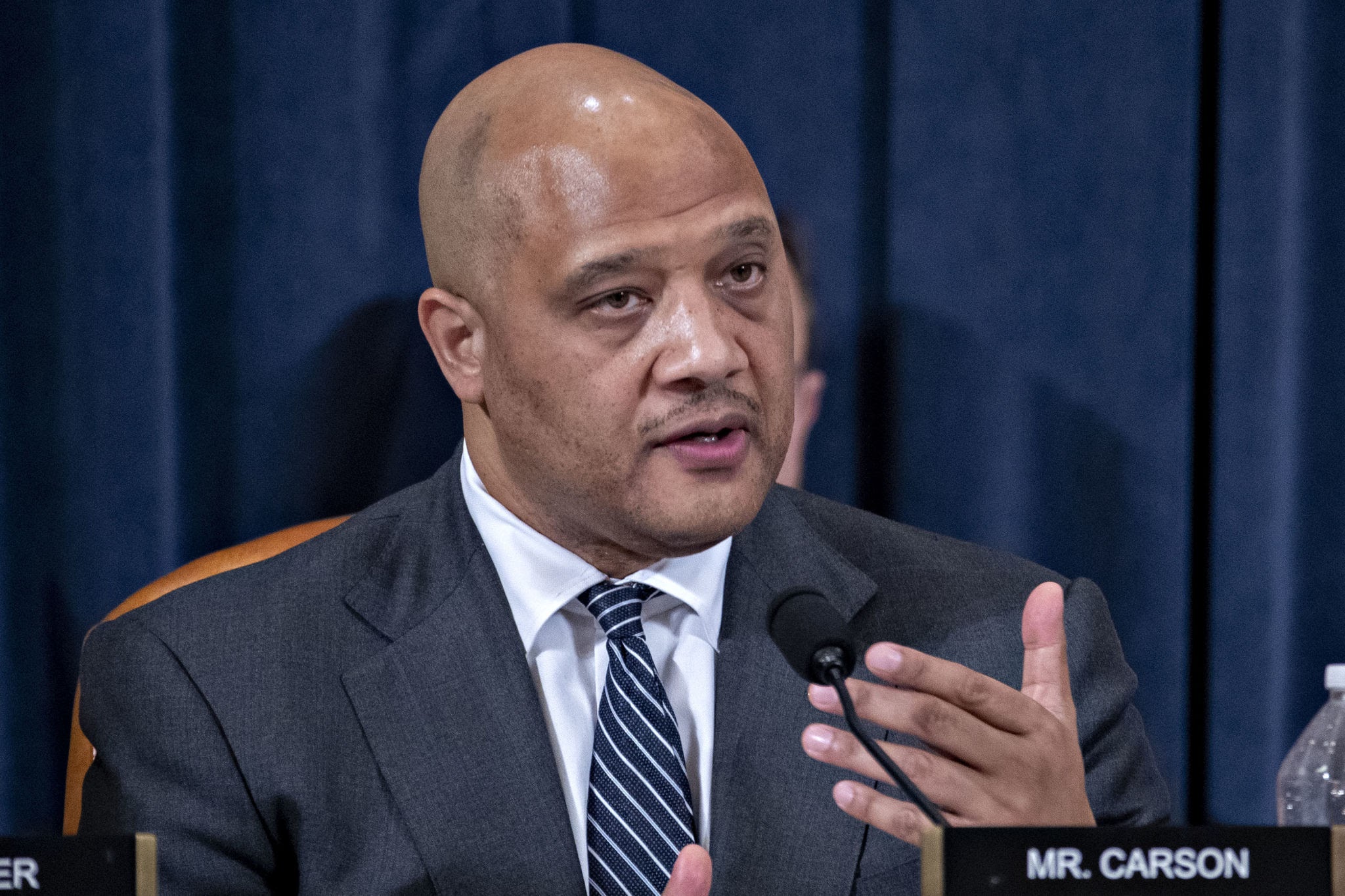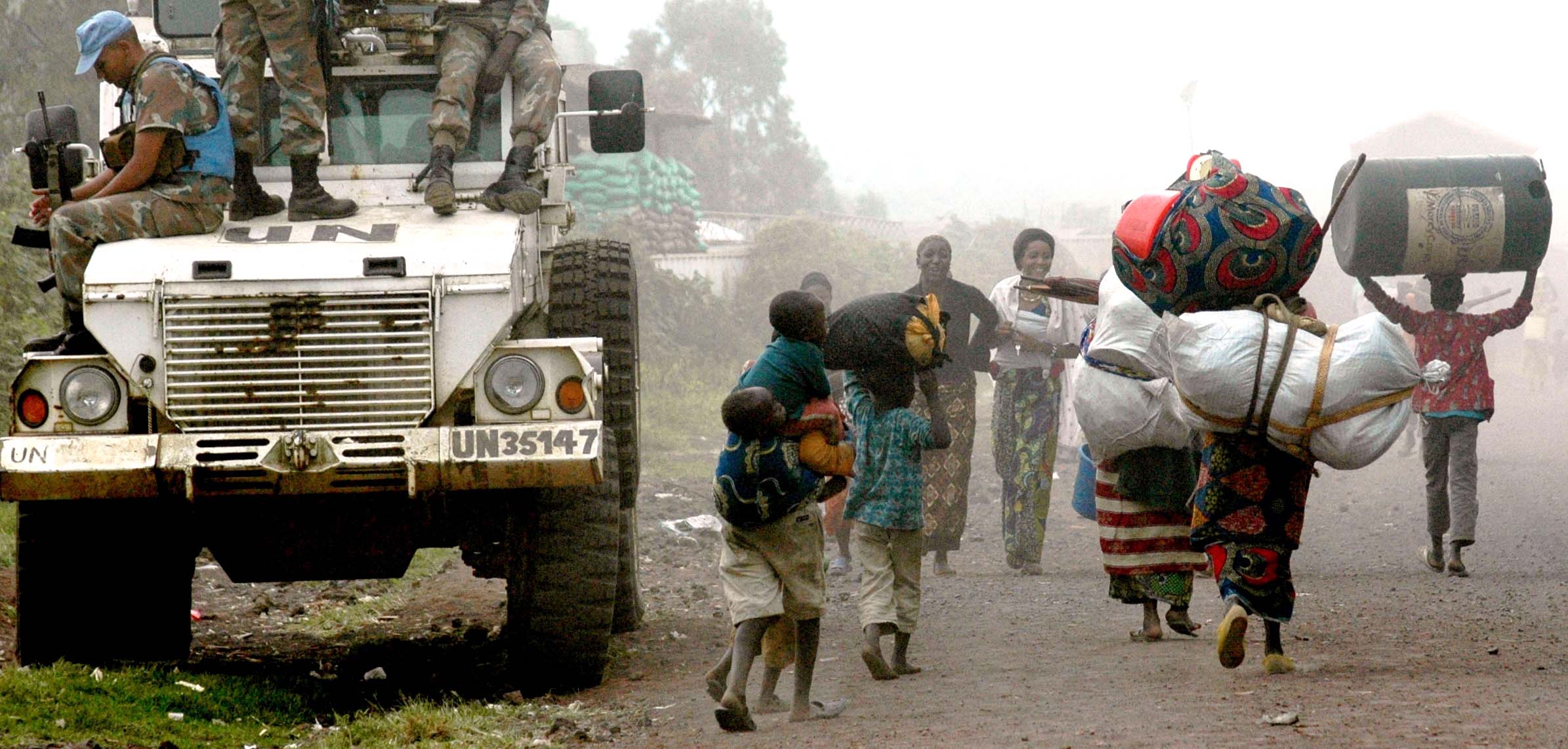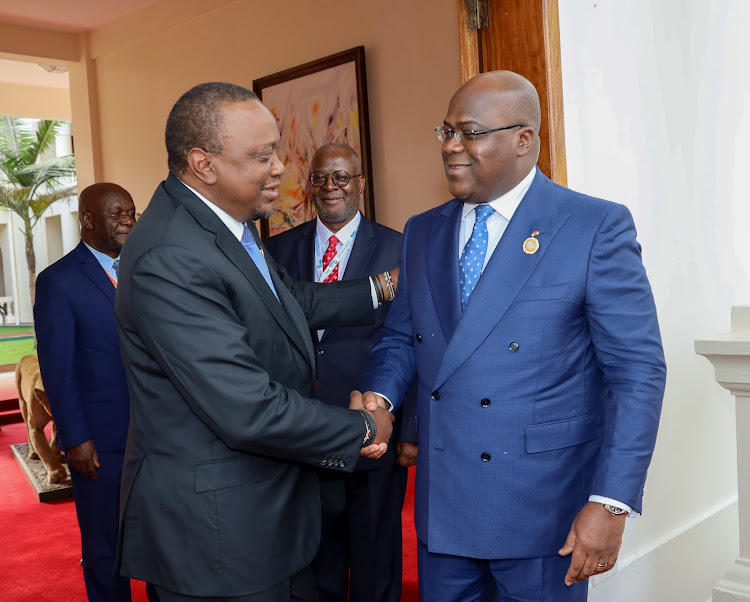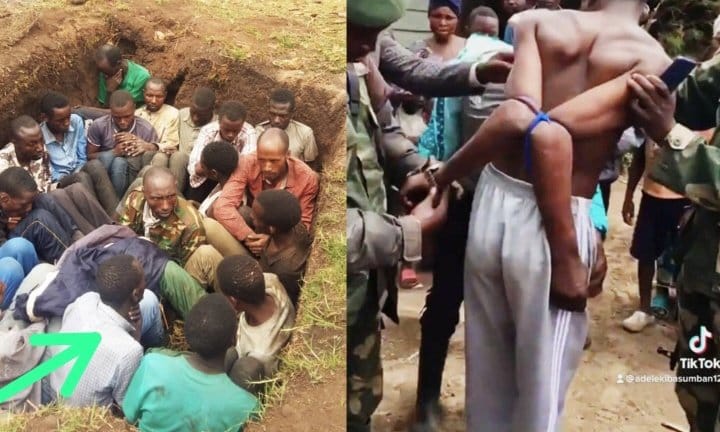International
World still ignoring risk factors for Genocide in DRC
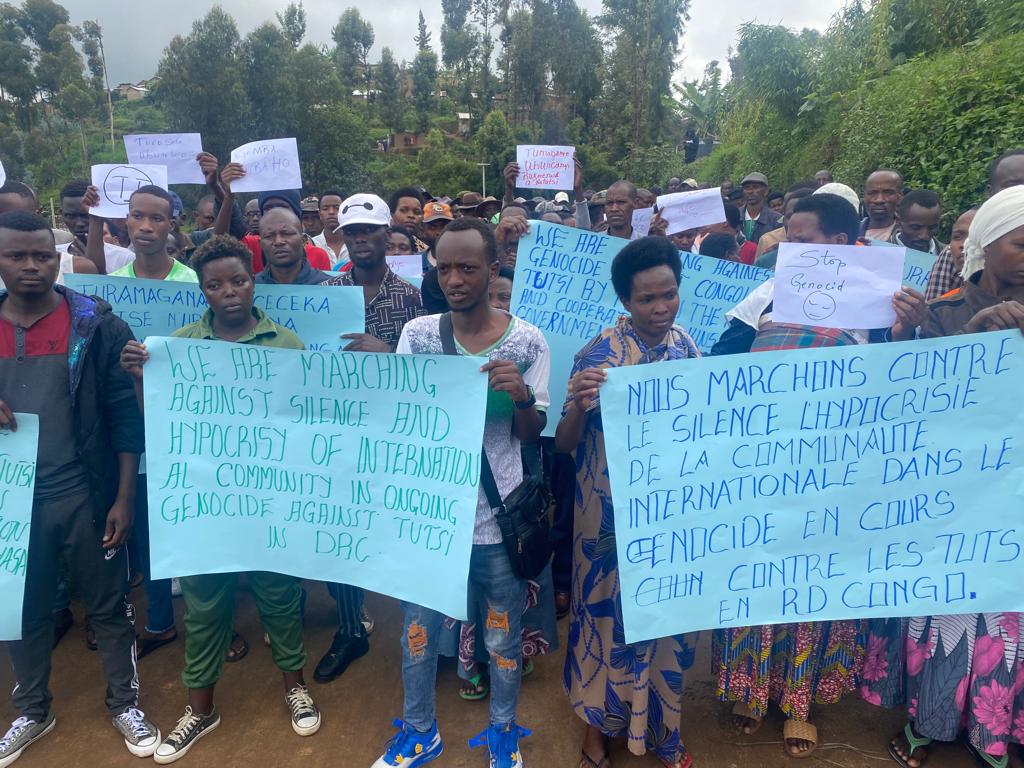
Congolese refugees in Rwandan camps demonstrating against the continued silence of international community on the looming genocide against Congolese Tutsi in the DRC.
A December 2023 report, by the Bill Clinton
Foundation for Peace describes the inhuman living condition of prisoners mainly
Congolese Tutsi in the notorious prison of Makala in Kinshasa.
A former detainee in the same
prison and journalist, Stanis Bujakera, posted videos on social media showing
extreme overcrowding, while other videos showed prisoners being tortured and
stripped naked as an act of humiliation. Stanis described the prison as a place
where "people are dying alive." Their crime is being Tutsi and
“traitors who are accomplices of M23.”
The world is not taking heed
of what is happening in eastern DRC and the same scenario as happened in Rwanda
in 1994, when the world showed no concern is being repeated in a neighboring
country.
Kinshasa is the main actor. It
recruited and armed youth militia under the name of Wazalendo, who are a
replica of the infamous Interahamwe militia in Rwanda who worked hand in hand
with government forces (ex-FAR) to kill the Tutsi.
Those included in the
persecution and killing of Congolese Tutsi include remnants of the perpetrators
of the 1994 genocide against the Tutsi in Rwanda, under the name of FDLR.
There are all signs of a
genocide in the making in eastern DRC against Congolese Tutsi with acts ranging
from hate speech, dehumanization, persecution, discrimination and killing.
The DRC government has created
a narrative disowning the Congolese Tutsi calling them foreigners and Rwandans.
That is why they are arrested, tortured and killed.
The government under President
Felix Tshisekedi has no intention of repertriating thousands of Congolese Tutsi
who are living in refugee camps in Rwanda, Uganda and other parts of the world.
Yet, when the UN talks about
the eastern DRC problem, no one is bothered to question the fate of these
people who have been denied their basic rights as Congolese.
In July, the UN Special
Adviser on the Prevention of Genocide, Alice Wairimu Nderitu, was in Rwanda and
she visited a Congolese Tutsi refugee
camp at Nkamira.
The following day, in a
message shared on X, she said: “I visited the Nkamira center housing Congolese
Tutsi fleeing the DRC, yesterday. The harrowing stories I heard of
identity-based attacks, brutal killings, tortures, rapes, I am carrying with
me. They will be heard. We must argue action for peace and safety, and their
return home.”
When the refugees heard this
commitment by a highly placed UN official they were overjoyed to hear that
someone cares about their plight and urgent need to return to their country.
During the 30th Commemoration
of genocide against the Tutsi, Nderitu was among the invited guests and in her
interview with the press, she affirmed that the Congolese government has the
responsibility to protect the Tutsi and Banyamulenge communities who are
targeted for their identity, warning that that there are, "risk factors
for genocide, war crimes and crimes against humanity,” in eastern DRC.
Nderitu seems to be a lone
voice in a complex web of the United Nations system. Although she came face to
face with the refugees who were denied rights to live in their country, nothing
concrete has been done to understand the root causes of their suffering and to
ensure that the violence against them is stopped so that they can safely return
to their country.
When one reads reports by the
UN Group of Experts (UNGoE), it is not difficult to see the biasness towards
criminalizing M23 rebels while making the Kinshasa regime the victim. For
unknown reasons, it is incomprehensible why Tshisekedi and his regime are not
sanctioned for condoning hate speech against Congolese Tutsi, arming local
militia Wazalendo to attack and kill the Tutsi, as well as arming a designated
terrorist group, the FDLR.
If the UN Special Adviser on
the Prevention of Genocide warns that there are risk factors for Genocide in
eastern DRC, why do we see other arms of UN not holding Tshisekedi and his
regime responsible?
Instead, the UNGoE seems to be
more concerned with DRC minerals than protecting the lives of Congolese Tutsi.
As long as the international
community continues to ignore the plight of Congolese Tutsi and refuses to
listen to their historical grievances, peace in eastern DRC will always remain
a dream.



